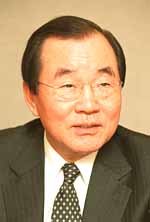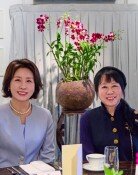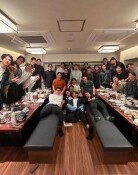Ex-envoy to D.C. gives advice
Ex-envoy to D.C. gives advice
Posted December. 26, 2000 14:31,

It takes at least six months for the dust to settle in Washington, D.C., whenever a political change of command takes place.
This was a popular saying quoted by former Korean Ambassador to Washington Hyun Hong-Joo, currently a senior lawyer with the law firm Kim & Chang, during an interview with Dong-A Ilbo on Monday prior to the transition of U.S. administration to the Republican President-elect George W. Bush.
What should Korea, in the interim of vacuum, prepare for?
Hyun had witnessed the process of the government of Republican President Bush being replaced by Bill Clinton's Democratic administration while he was the Korean envoy there between February 1991 and April 1993. His advice for Korea: "Try to build up human channels for diplomatic dialogue and make the best of the period as an opportunity to seize the initiative in addressing bilateral points at issue"
The old hand at American affairs said the Seoul government needs not rush to arrange a summit meeting of President Kim Dae-Jung with President Bush as the bygone undemocratic military regimes did.
"Koreans ought to be reminded of the fact that America is a society ruled by law and, therefore, legal disputes are likely to persist and call for close attention over such issues as trade even during a helter-skelter of power transfer," he stressed.
Pointing out the possible negligence of national interests by the foreign service in their efforts to please the president, Hyun gave the example of a former president who insisted on meeting with President Clinton on his way to the U.N. General Assembly and thus adversely affected other parts of his important diplomatic itinerary. He said national concerns must be judged in a broad perspective and from a higher dimension.
The incumbent Seoul government has no reason to be impatient and worry about that we have few officials in the Bush administration who are close to the Seoul government, the retired diplomat stated.
"The United States should be dealt with in an open and fair manner, and we have to be wary of such shady lobbyists who raise their heads in times of governmental change," Hyun said.
Asked about which official in the incoming administration attracted his greatest attention, Hyun observed that when he first saw Stanford professor Gondorreezza Rice in 1990 he was deeply impressed by the deep savvy and thoroughness of the woman scholar who has lately been designated the new White House national security advisor.
Boo Hyung-Kwon bookum90@donga.com







